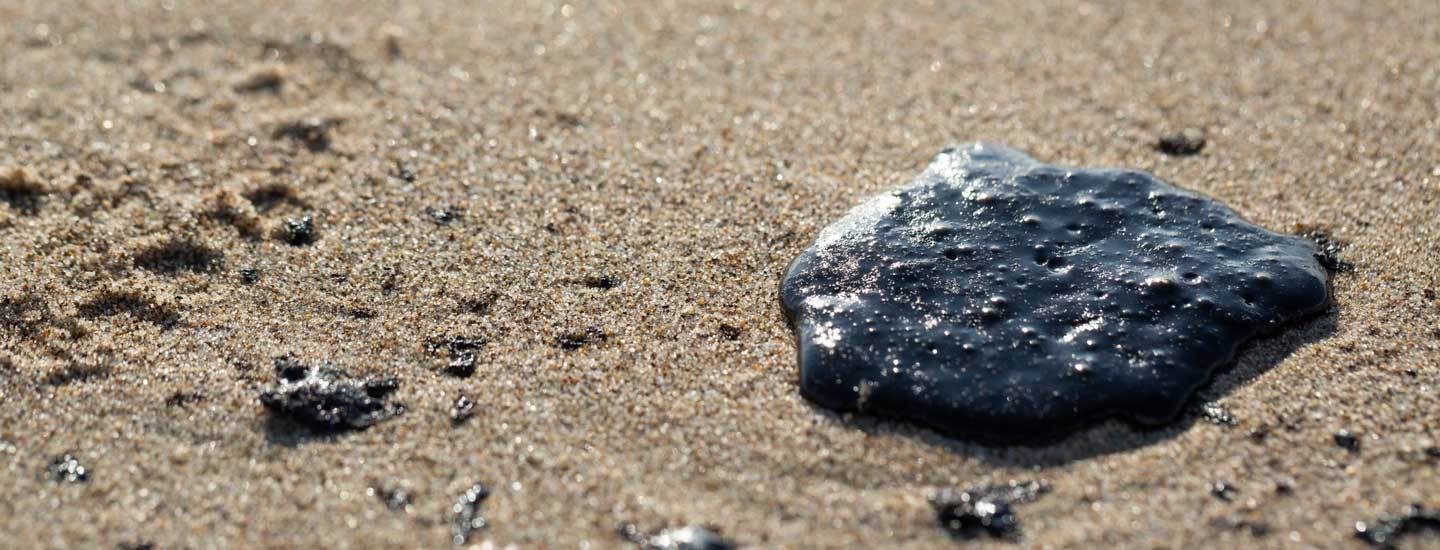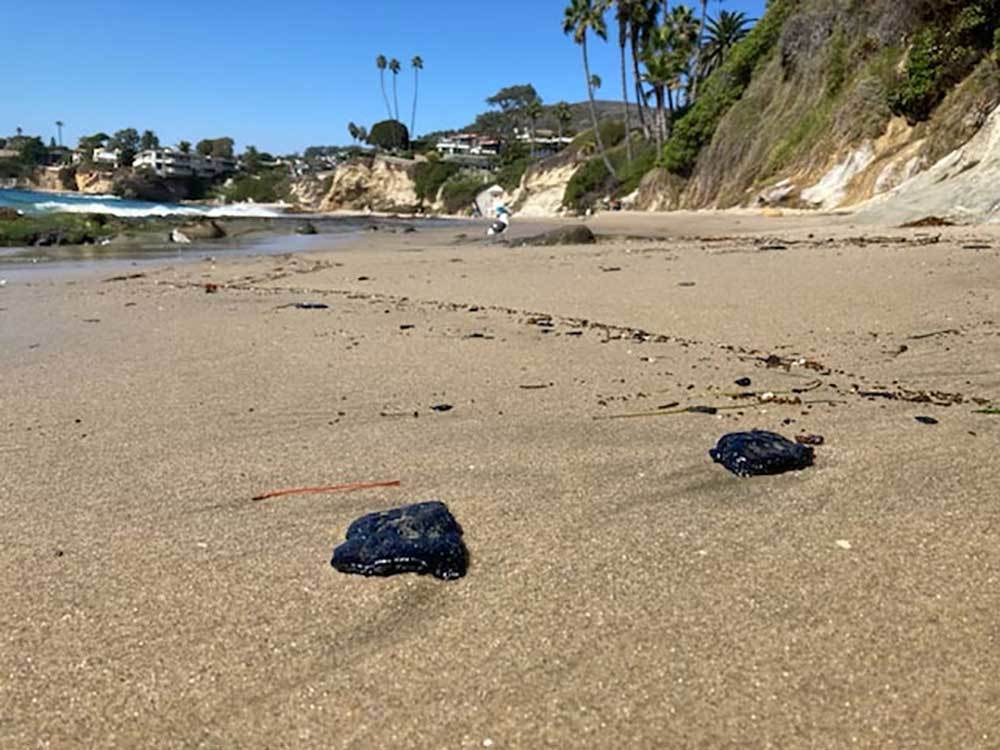
On October 2nd, disaster struck off Orange County, CA when an offshore drilling pipeline ruptured, releasing an estimated 24,696 gallons of crude oil spilled into the ocean. The 13 square mile oil slick has wreaked havoc on both the environment and communities, harming marine life, damaging sensitive habitats, triggering beach closures, and washing as far south as Mexico. The responsible company, Amplify Energy, has since secured the pipeline from leaking and is proceeding with repairs in close coordination with Unified Command. The cause of the event is still under investigation.
As we approach the one month anniversary of the oil spill, Surfrider is pleased to report that there has been significant progress in responding to this environmental disaster. Under the efforts of the Unified Command, which includes the U.S. Coast Guard, CA Dept of Fish & Wildlife, Orange Co., San Diego Co., and Amplify Energy, over 1,900 trained professionals and volunteers were deployed to support the cleanup effort. To date, 513,232 lbs of tar have been collected with response crews deployed from Long Beach to La Jolla. Meanwhile, 34 live animals have been collected and 19 of those animals have been released.
We’re also happy to report that beaches in Orange and San Diego counties are open as officials continue to monitor water quality for risks to public health. To date, water quality tests and air quality tests have rendered results below detection thresholds and below regulatory requirements. More information can be found here and we encourage beachgoers to check for the latest updates before you head to the beach. As of October 25, 2021, no beaches have been “signed off”, meaning cleared of oil and passing multiple tests and waiting periods. The cleanup is an iterative process, so a shoreline that reaches the “signed off” status can return to the cleanup stage if oil reappears. A fisheries closure is still in effect, which prohibits the catch and consumption of any fish or shellfish in the area.
The Surfrider Foundation would like to thank all the agencies, trained professionals and volunteers involved for all of their cleanup efforts to address the spill. As the NGO Liaison to the Unified Command, Surfrider will continue to push for a comprehensive cleanup as well as sufficient environmental mitigation and accountability for the responsible party.
What Surfrider is doing to respond:
In order to address the pressing need of tracking tarball migration, Surfrider launched a brand new crowd sourcing app to enable everyone to participate in the cleanup efforts. The smartphone app allows participants to quickly share GIS location, time, date and photos of sighted tarballs. If you spot a tarball, please do not attempt to pick it up! Oil contains hazardous chemicals, report any sightings via the app.
Surfrider is also working tirelessly with other NGOs to formulate the long-term changes needed to address this devastating event and prevent it from happening again. We are working closely with the relevant agencies to ensure all damage is documented and mitigated. The Natural Resource Damage Assessment (NRDA) process is just beginning, which will determine the type and amount of restoration needed to offset the impacts from the heartbreaking spill. Surfrider plans to play a key role in the NRDA efforts for the months and years to come. Right now, the most important thing to do is to document the damage, and the tarball app is a great way to engage.
Instruction to Download the Tarball App
- Download the ArcGIS QuickCapture mobile app from your device's app store
- Click “Proceed without signing in”
- Scan the QR code to reach the Tar Reporting Project (or click here)
- Enter your name and email. Your personal information will not be shared or made available to anyone.
- Go to the beach and record total # of tarballs in one entry.
Optional: Turn on “track my steps” to help other volunteers identify which beaches have recently been observed.
Having trouble? Contact Surfrider

Surfrider's Priorities
Demand Full Cleanup - Surfrider is pushing US Coast Guard, CDFW, other agencies and the responsible party to conduct a full and comprehensive cleanup effort that removes the oil and protects public health and safety.
Hold polluters accountable - Surfrider is fighting to ensure that Amplify Energy abides by the Oil Spill Prevention and Response Act through mitigating ecological harm. We also successfully pushed Gov. Newsom to sign SB 433 which will increase state enforcement authority and better deter future harm to the coast.
Protect Public Health - Surfrider asked Unified Command to conduct immediate water quality monitoring for oil contamination and coordinate with local government on public outreach and beach advisories. Sampling of beaches is underway and results will be posted to the Southern California Spill Response.
Chapter Leadership - Surfrider’s Huntington Seal Beach and Newport Beach Chapters met with City Council, Rep. Steel and other leaders to discuss spill response and the need to ban offshore drilling. Huntington Beach recently became the 100th west coast city to pass a resolution opposing offshore oil and gas drilling.
Spreading the Word - Surfrider is providing regular updates on our channels and the media including Surfrider CEO Chad Nelsen on KNBC-LA, a CNN column by Pete Staufer, and our Protect & Enjoy podcast. Pete Staufer will also testify at the CA Senate Natural Resources & Water Committee hearing on the oil spill this week.
Volunteer Engagement - Surfrider is promoting the state’s official volunteer page and recruiting supporters who want to make a difference.
Stop New Offshore Drilling - Surfrider is uniting our national network to urge Congress to permanently ban new offshore drilling in the Pacific, Atlantic, Gulf of Mexico and Arctic Ocean. Take Action.
More information:
Oiled wildlife, please do not attempt to touch, call 1877-UCD-OWCN
Claims: 1-866-985-8366
Comprehensive list of the species and daily updates on impacted wildlife
